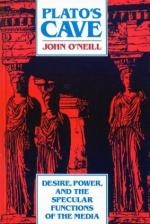|
This section contains 1,204 words (approx. 5 pages at 300 words per page) |

|
Robert Merton introduced a form of functionalism in his 1949 book Social Theory and Social Structure, and that form has been widely adopted by media researchers. His "functional analysis" detailed how the study of social artifacts (such as media use) could lead to the development of theories explaining their "functions." Merton derived this perspective from earlier forms of structural-functionalist theories that were used in anthropology and sociology. Functional analysis argues that a society can best be viewed as a "system in balance," consisting of complex sets of interrelated activities, each supporting the others. All forms of social activity play a part in maintaining the system as a whole.
The apparent value neutrality of functional analysis appealed to many media scholars because much early media theory characterized media and media consumption as either "good" or "bad." Functionalists reject this good-bad dichotomy, arguing instead that...
|
This section contains 1,204 words (approx. 5 pages at 300 words per page) |

|


